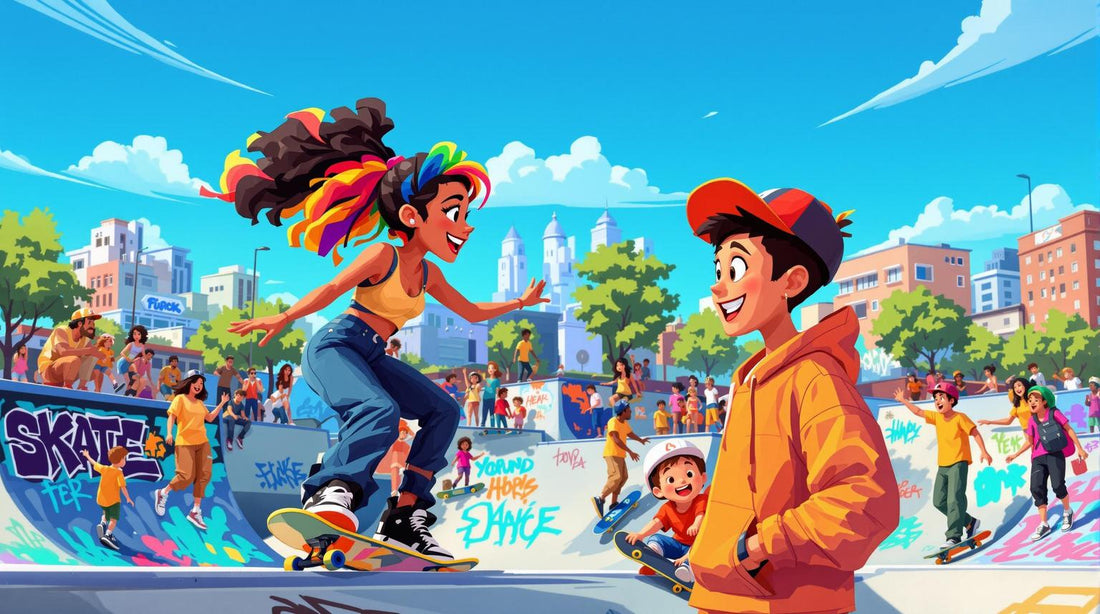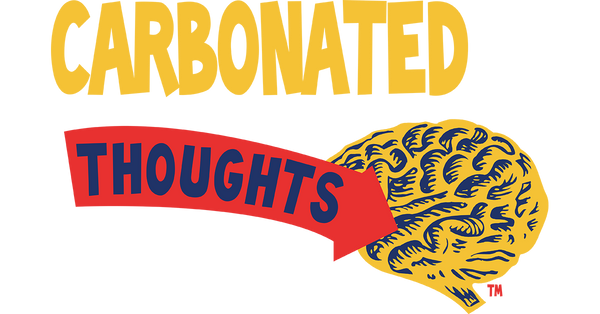
How Skate Mentorship Builds Community
Share
Skate mentorship connects experienced skaters with beginners, creating a supportive and welcoming community. It’s not just about learning tricks - mentorship helps new skaters build confidence, develop skills, and feel like they belong. Here's why skate mentorship matters:
- Overcomes Challenges: Mentors help beginners tackle confidence issues and ease into skateparks.
- Improves Skills: Personalized guidance and regular practice sessions accelerate progress.
- Fosters Community: Mentorship introduces skaters to local events and promotes inclusivity.
- Encourages Creativity: Skaters explore personal style and unique techniques.
Through mentorship, skateboarding becomes accessible, inclusive, and a way to strengthen local communities.
Main Advantages of Skate Mentorship
Building Skills and Confidence
Mentorship programs offer structured guidance to help skaters improve their skills and build confidence. Mentors simplify complex tricks into smaller, achievable steps, set clear goals, and celebrate progress along the way. This approach not only enhances technical abilities but also strengthens mental resilience, creating a supportive environment for skaters.
Promoting Inclusivity in Skating
Mentorship programs aim to make skateboarding more welcoming and accessible for everyone. They focus on:
- Accessibility: Offering flexible programs that cater to various skill levels and schedules.
- Diverse Perspectives: Encouraging understanding and respect for different cultural backgrounds.
- Financial Assistance: Providing equipment and resources to those who need them.
Encouraging Personal Style
Mentorship also helps skaters explore and develop their individual style. This includes:
- Experimenting: Trying out new techniques and approaches.
- Expressing Creativity: Supporting unique combinations of tricks and styles.
- Pursuing Individual Goals: Focusing on specific interests and abilities that make each skater unique.
Key Elements of Effective Skate Mentorship
| Element | Purpose | Impact |
|---|---|---|
| Regular Practice Sessions | Build skills and consistency | Improved technical abilities |
| Community Events | Foster social connections | Stronger sense of belonging |
| Creative Workshops | Encourage style and expression | Boosted personal confidence |
| Group Activities | Promote peer learning and support | Broader skillset and perspective |
Community Impact of Skate Mentorship
Bringing People Together
Skate mentorship programs help connect people from various backgrounds. Seasoned skaters mentor beginners, breaking down social barriers across different age groups, skill levels, and experiences. These programs encourage understanding and respect, creating relationships that extend beyond the skatepark.
One standout example is the Pope Of Love art initiative by Carbonated Thoughts. This project shows how skateboarding can bring people together to support meaningful social causes. Collaborative efforts like these bridge generational divides and offer shared learning opportunities.
Collaborating on Local Projects
Mentorship programs often strengthen community ties by working on local projects. These efforts bring participants together while benefiting the community. Examples include:
| Project Type | Community Benefit | Participant Growth |
|---|---|---|
| Park Clean-ups | Better skating spaces | Builds responsibility |
| Art Installations | Beautifies public areas | Encourages creativity |
| Local Fundraisers | Raises needed resources | Develops management skills |
| Skate Demonstrations | Engages the public | Builds leadership skills |
Environmental awareness is also becoming a key focus. For instance, Carbonated Racing runs a tree-planting program, planting a tree for every skateboard deck sold. These projects not only improve the community but also deepen connections among participants.
Advocating for Local Issues
Skate mentorship programs encourage skaters to get involved in local decision-making. By attending government meetings and community planning sessions, mentors and mentees can influence decisions about skateparks and public spaces. This hands-on involvement teaches civic engagement while ensuring the skating community has a voice.
These programs also collaborate with local organizations on efforts like park preservation, urban greening, and bee conservation.
"Make a difference with us!" - Carbonated Thoughts
This call to action highlights how skate mentorship programs combine skating with civic responsibility. By doing so, they build stronger, more connected communities and prepare the next generation of community leaders.
sbb-itb-e116ef9
Setting Up Effective Mentorship Programs
Program Structure and Guidelines
Build your skate mentorship program on a well-defined framework that outlines roles, schedules, and safety measures. Include regular check-ins, planned practice sessions, and clear communication methods between mentors and mentees.
| Program Component | Key Requirements | Purpose |
|---|---|---|
| Mentor Training | Safety certification, first aid knowledge, teaching techniques | Ensures skilled guidance |
| Session Planning | Weekly schedules, skill progression maps, goal tracking | Keeps progress on track |
| Safety Protocols | Equipment checks, emergency procedures, insurance coverage | Protects all participants |
| Communication | Weekly updates, digital tools, progress reports | Keeps everyone informed |
A structured approach ensures the program benefits every skater.
Making Programs Available to All
Accessibility plays a key role in fostering an inclusive skating community. Programs should cater to various skill levels, physical abilities, and financial backgrounds. For example, Carbonated Thoughts has set a standard for inclusivity in skateboarding culture.
Here are some ways to make programs accessible:
- Equipment Support: Offer a gear library with boards and safety gear for those who can't afford their own.
- Financial Aid: Provide sliding-scale fees and scholarships to reduce financial barriers.
- Location Access: Use venues that are easy to reach via public transportation.
- Adaptive Equipment: Supply modified gear for skaters with different physical needs.
- Multilingual Resources: Develop materials in multiple languages to reach diverse communities.
Measuring Success and Getting Feedback
After ensuring the program is inclusive, evaluate its impact and gather feedback from participants. Use both numbers and personal stories to measure success:
| Metric Type | What to Measure | Collection Method |
|---|---|---|
| Participation | Attendance rates, retention numbers | Digital check-ins |
| Skill Progress | Technique improvement, safety knowledge | Skills assessments |
| Community Impact | Local involvement, project participation | Event tracking |
| Participant Experience | Satisfaction, personal growth | Surveys and feedback forms |
Create multiple ways to collect feedback, such as:
- Anonymous suggestion boxes
- Monthly group discussions
- One-on-one check-ins
- Online surveys
- Parent/guardian feedback forms
This balanced approach ensures mentorship programs stay effective, inclusive, and aligned with the community's needs.
GRLSWIRL X LOVE ACTIVISTS KIDS skate mentorship ...

Conclusion: Long-Term Impact of Skate Mentorship
Skate mentorship programs go beyond teaching skating techniques - they create lasting, positive changes for individuals and entire communities.
On a personal level, mentees develop more than just skating skills. They learn perseverance, problem-solving, and self-expression. Mentors play a key role in boosting confidence by helping new skaters overcome challenges.
The community impact is just as meaningful. These programs break down social barriers and foster stronger neighborhood connections. For instance, Carbonated Thoughts highlights how skateboarding brings together people from different backgrounds, making the sport more inclusive for all.
Here’s a closer look at how skate mentorship influences both individuals and communities:
| Impact Area | For Individuals | For Communities |
|---|---|---|
| Personal Growth | Confidence, leadership, creative expression | Development of strong role models |
| Social Connection | Broader social circles, cultural awareness | Greater community engagement, less isolation |
| Local Participation | Civic involvement, leadership opportunities | Community-driven projects, better public spaces |
These combined effects lead to long-lasting improvement. By making skateboarding accessible to everyone, we can create stronger, more connected communities. Supporting skate mentorship today can help shape a better future for both individuals and neighborhoods.
